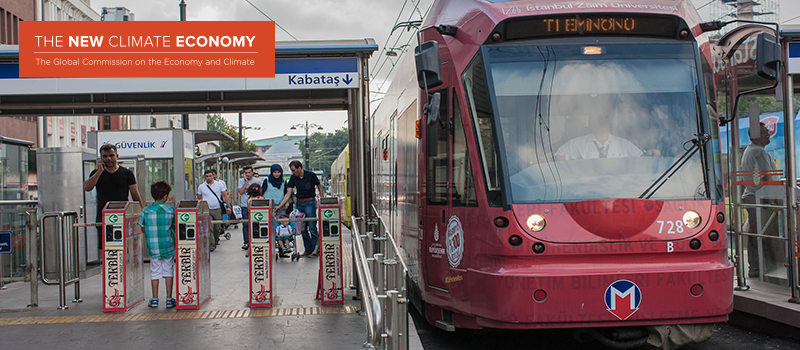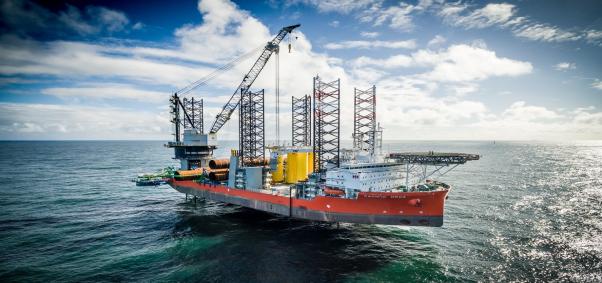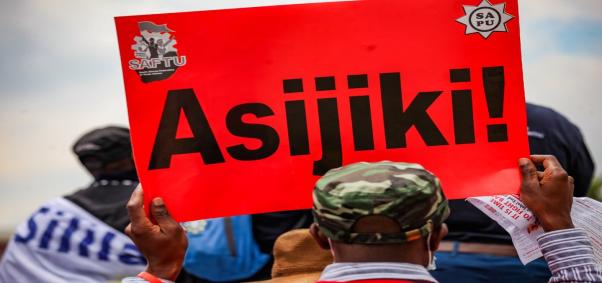
To subscribe to the New Climate Economy's monthly newsletter, sign up here.
NCE Commissioners discuss economics and climate change at WEF16
At the 2016 World Economic Forum (WEF16) in Davos, Global Commissioners from the New Climate Economy provided evidence of the economic benefits of ambitious climate action to policymakers and business representatives in a number of sessions. Sharan Burrow (General-Secretary, International Trade Union Confederation) and Paul Polman (CEO, Unilever) participated in a panel discussion on The New Climate and Development Imperative, alongside Erna Solberg (Prime Minister, Norway), Laurent Fabius (Foreign Minister, France) and Jim Yong Kim (President, World Bank). The panel discussed the implications of the Paris climate agreement, the drivers of action for development and climate targets, and the role of technology in improving climate ambition over time.
At the Digital Transformation of Industries event, Jean-Pascale Tricoire (CEO, Schneider Electric) discussed what defines a digital transformation and how to make the right investment decisions in digital cultures. Lord Nicholas Stern, Co-Chair of the Global Commission on the Economy and Climate, as well as Commissioners Michel Liès (CEO, Swiss RE) and Helen Clark (Administrator, UN Development Programme) also participated in WEF16 panels.
Paper: Unlocking the power of urban transport systems
This new paper provides a review of how compact, connected, and coordinated cities can help generate stronger growth, create jobs, alleviate poverty, and significantly reduce the cost of providing services and infrastructure. It starts with the main trends and emerging new opportunities in urban transport, and highlights the costs of the sprawled model of urban development and transport emerging in a number of countries compared with a more compact, coordinated, and connected model. It also identifies some potential tipping points in transport mobility worldwide, including new technologies enabling new models of mobility. It concludes with an overview of international collaborative initiatives on urban transport and with recommendations for policymakers.
Commission on Business and Sustainable Development Launches
The Global Commission on Business and Sustainable Development, inspired in part by the Global Commission on the Economy and Climate, was launched at the World Economic Forum on 21 January 2016. The new initiative aims to show why it makes sense for businesses to engage on sustainable development at a far more strategic level than it has to date, and to map out new financing mechanisms the world will need to achieve the Sustainable Development Goals. It will investigate changes in core business operations and behaviors that go beyond traditional corporate social responsibility and voluntary partnerships. Read their press release for more.
Good reads for a new climate economy
How to mobilize private sector finance for sustainable infrastructure
After the Paris agreement, many countries are looking to scale their investment in infrastructure that is socially inclusive, low carbon, and climate resilient. The huge quantity of investment required means that establishing the right conditions to attract private-sector investment is critical. In this paper by the McKinsey Center for Business and Environment, the authors highlight the major barriers that must be overcome and the ways to encourage more capital investment in sustainable infrastructure. The paper determines that a “muscular set of nudges and risk-sharing instruments are required”.
Models for Financing Clean Infrastructure in Middle Income Countries
What happens to clean infrastructure finance when countries are big and fast-growing but have immature financial systems and a scarcity of long-term domestic investors? The Climate Policy Initiative compares two different financing models from middle income countries: the highly centralized model of Brazil and the decentralized model from India. While evaluating the strengths and weaknesses of each model, the paper finds that despite differences, both countries end up with public financing dominating clean infrastructure projects with similar levels of leverage in both. Brazil’s centralized development banking did foster greater scale than India, but the Indian model can better attract commercial and international development sources. The paper explores further insights learned from comparing the two models.
The Economic Costs and Benefits of Securing Community Forest Tenure
Evidence is growing that securing community forest tenure can result in avoided deforestation, increased ecosystem services, and economic and social benefits. But it also involves costs, including to establish supportive legislation, to demarcate and register the lands, and to monitor and protect the lands, as well as opportunity costs. In this paper by the World Resources Institute, the authors find that the economic benefits of securing community forest tenure outweigh the costs. Securing community land rights can be a low-cost investment that benefits communities, countries, and global society. The results suggest that these measures can be a very cost-effective way to mitigate climate change.






